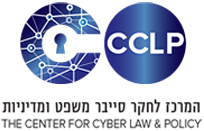
Law Scholl of the University of São Paulo
Thiago Dias Oliva is a Ph.D. student in International Law at the University of São Paulo and head of research on freedom of expression at InternetLab, an independent research center based in São Paulo, Brazil. Thiago holds a master degree in Human Rights (2015) from the same university, having been granted a scholarship from the São Paulo Research Foundation (FAPESP) and the German Academic Exchange Service (DAAD). Author of the book "Sexual minorities and the limits of free speech" (2015).
Abstract:
CONTENT REMOVAL TECHNOLOGIES: NEW CHALLENGES TO FREEDOM OF EXPRESSION
The digital environment has brought new ways of communicating and sharing content. Internet platforms like Facebook, Twitter and YouTube – protected from third party content liability in the USA pursuant to §230 of the Communication Decency Act – have enabled users to produce, publish and disseminate all sorts of content, which meant taking freedom of expression and access to information to a whole new level of enjoyment. With the increase in content production and growth in number of accesses, however, new challenges have arisen: the dissemination of defamatory content, non-consensual intimate images, hate speech, fake news, as well as the increase of copyright violations. In this context, internet platforms have been pushed by public authorities in many countries to increasingly moderate content.
The move has led these companies to adjust their terms and conditions of use, design more sophisticated frameworks for identifying illegal content and hire more people to work as moderators. Due to the huge amount of work required for moderating content, internet platforms have started developing artificial intelligence in order to automate decision making regarding content removal. Both Facebook and YouTube have already implemented a technology for removing copyright-protected content, terrorist propaganda as well as non-consensual intimate images. It looks for “hashes”, a unique digital fingerprint that these companies automatically assign to certain videos and images, allowing all content with the same fingerprints to be struck down very quickly.
Other technologies developed to remove text-based content are underway. Despite removing content in a very effective manner, technologies such as these may cause human rights violations whenever they fail to understand context and recognize specific content as socially valuable, whether from a freedom of expression or an access to information perspective. Mindful of these challenges, the present study intends to further understand and analyze existing automated content removal technologies from a legal perspective, in order to assess the risks they pose to freedom of expression and access to information in the digital environment.
Key-words: Content removal technologies; Internet platforms; Freedom of Expression; Access to Information





